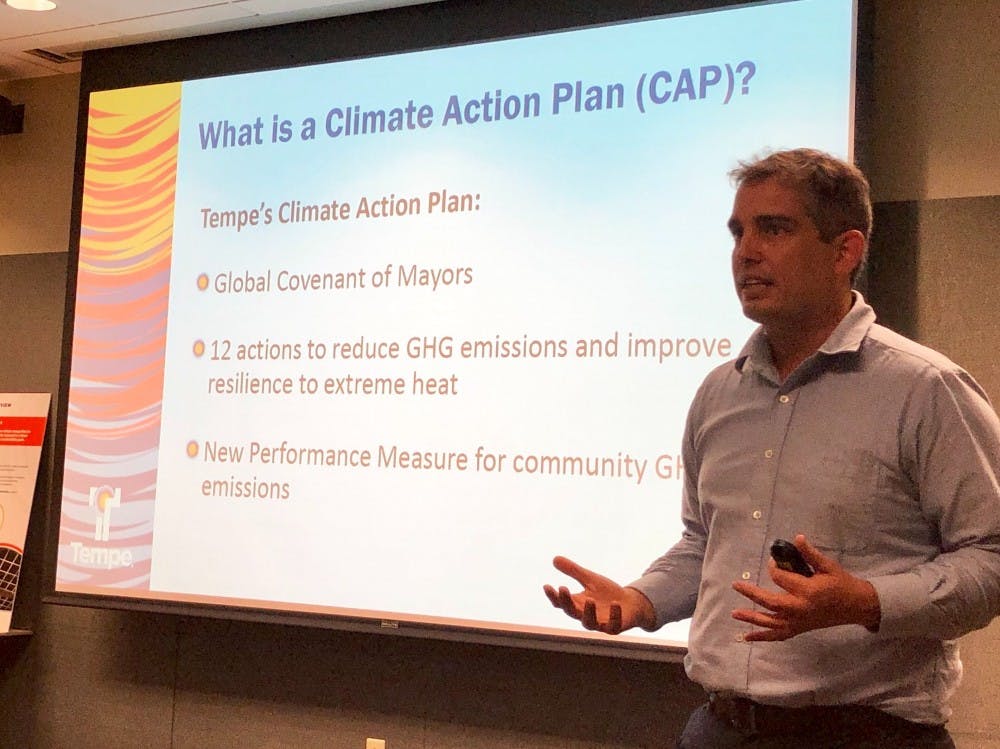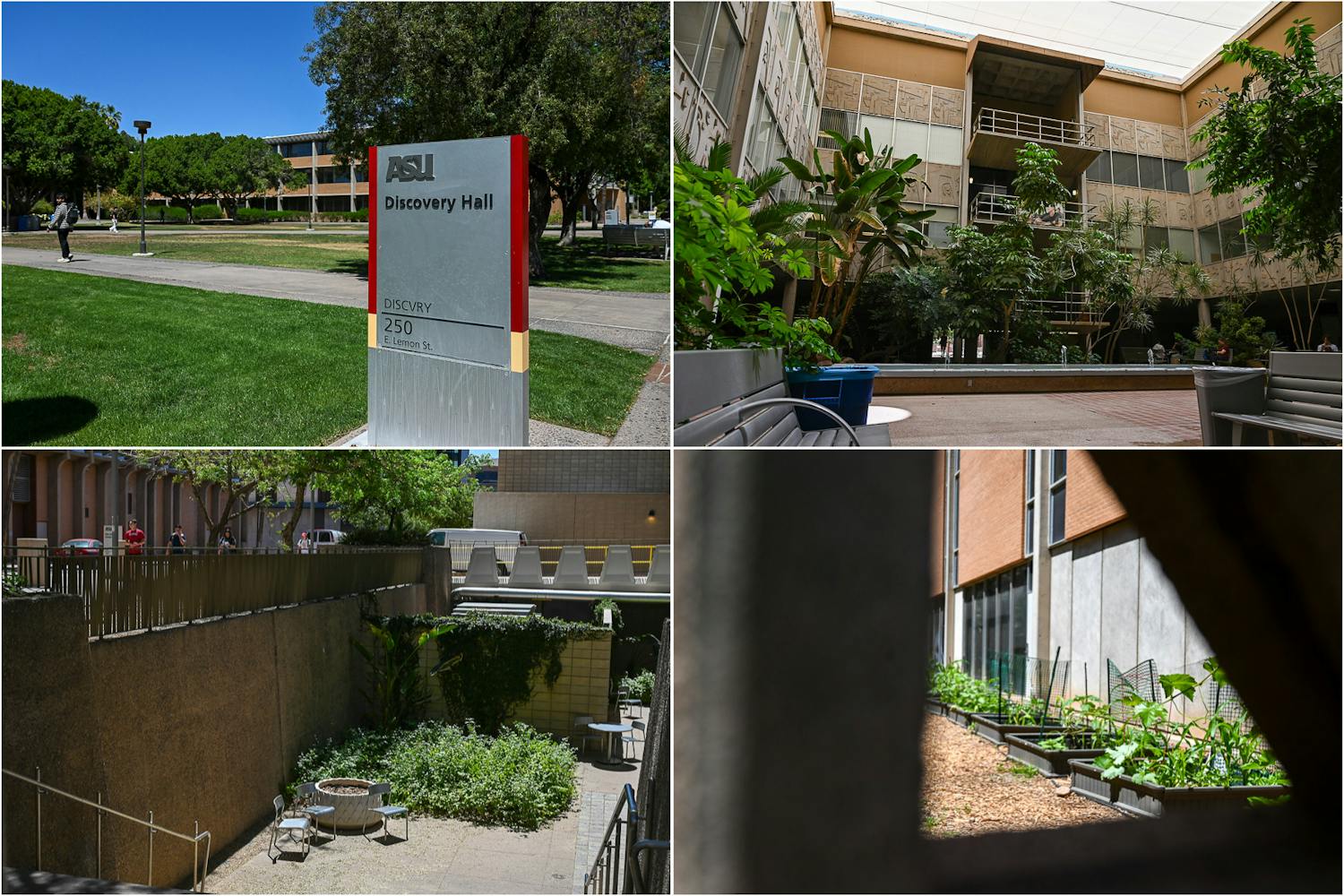Tempe's Sustainability Commission held an open forum Tuesday night at the Tempe Public Library to showcase its Climate Action Plan and receive feedback from members of the public.
Braden Kay, the director of sustainability for the city of Tempe, spoke about the newest draft of the city’s plan to reduce greenhouse gas emissions, provide more accessible transportation for residents and promote resilience to extreme heat through the Climate Action Plan (CAP).
Kay discussed how the most important part of the plan is changing the culture surrounding climate action in Tempe because businesses currently lack the incentive to prioritize a sustainable business model.
“There is no question that a lot of the work that we're talking about is culture change work,” Kay said. “A lot of this is around figuring out how we create a culture change in our community as well as within city government.”
The CAP was first developed as a collaboration between the city of Tempe, and ASU's School of Sustainability. After receiving additional feedback from the public, the CAP will be further revised and then given to the Tempe City Council for adoption in November.
Read More: City of Tempe continues work with ASU to craft climate action plan
Kay talked with audience members about the shared responsibility of making Tempe more sustainable by involving the efforts of community members, city officials, businesses and ASU in order to create a dialogue about climate action.
“The key piece is that there's an opportunity to have more of a dialogue about how businesses can take action with their utilities that hasn't been happening in a certain way in Arizona,” Kay said. “Every community that does climate action planning tries to figure out the best way of catalyzing those conversations and getting that work to happen.”
Kay also discussed a future update to the CAP called CAP 2021, which will focus on city investments for climate action and equity across Tempe’s various communities.
“Frontline communities (like) communities of color and different communities that are going to be impacted by climate change first have a large role to play and a large voice in our climate action plan,” he said.
Kay said there are places in Tempe where people are more adversely impacted by extreme heat, and that these areas have people with fewer resources and are less likely to be able to advocate for themselves.
The CAP 2021 update will look for ways to provide additional resources to these communities, such as increasing the tree canopy in these neighborhoods.
Roy Tatem, the president of the East Valley NAACP, said he came to the meeting to get information for members of his community who could not attend the event.
“The heat is projected to increase and go to 120 degrees (and) we have to prepare for it,” Tatem said. “Regardless of who you are or where you live, it’s going to impact you.”
Tatem said components of the CAP including the more environmentally friendly building codes, the urban forestry plan and the emergency management plan are a step in the right direction.
As a representative for a diverse community, Tatem believes the equity focus in the 2021 update is especially important.
“To see this city taking these measures is exciting, and I would think more cities would want to follow suit,” he said.
Kay said that one problem with council meetings is that the same 10 people inform those making decisions for the community.
The lack of diversity in the council meetings prompted the city's Sustainability Commission to consider reaching out to social justice organizations at ASU and around Tempe in order to get more voices to play a larger role in creating climate equity and persuading businesses to promote climate action.
Anna Melis, a junior at Tempe Preparatory Academy, said that after attending an ASU organized Arizona Youth Climate Summit in Phoenix and learning about the CAP, she learned more about how to push for climate action legislation.
Melis and other high school students in the Phoenix area are now drafting a resolution for climate change and are planning a climate strike for Sept. 20 in Phoenix.
“This is a great example of what we need to do (and) how we need to do it,” Melis said. “This sort of thing is really, really important and I'm glad that it's happening.”
Reach the reporter at tmlane3@asu.edu and follow @tmflane on Twitter.
Like The State Press on Facebook and follow @statepress on Twitter.




